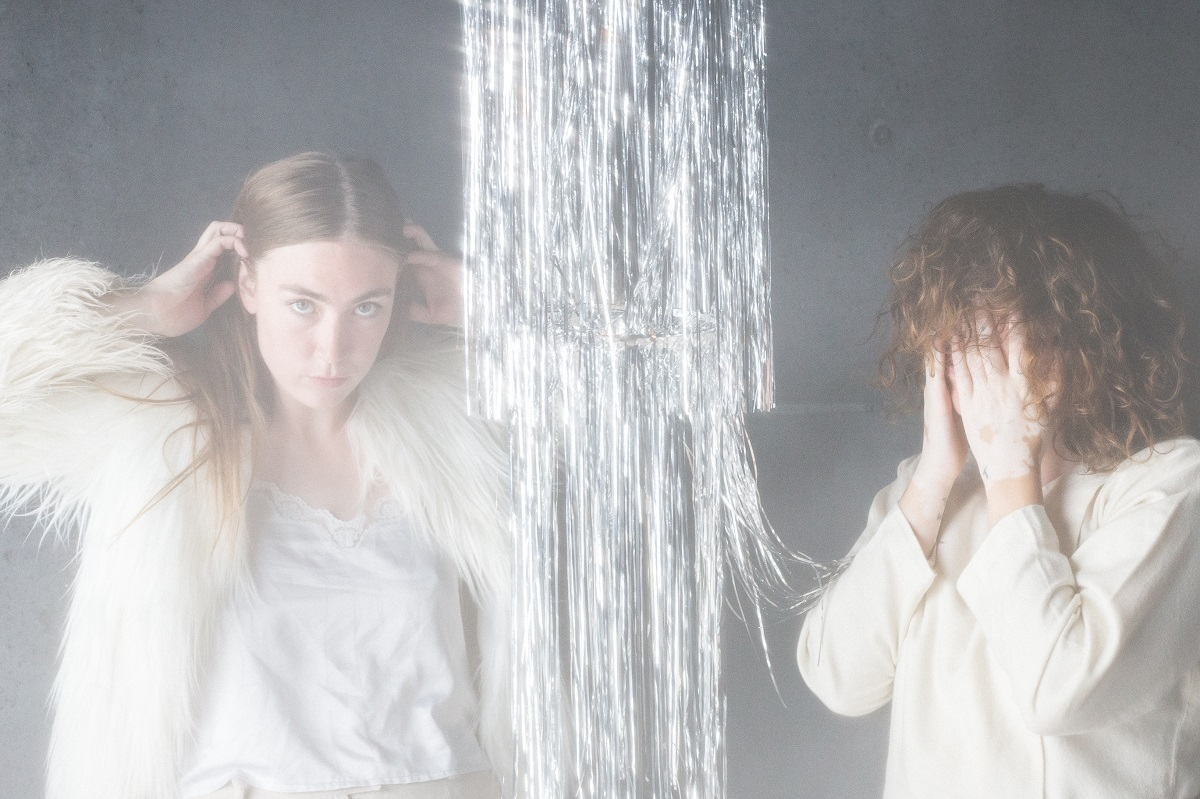
Low Skies Divine
Created by Samantha Shay and Áslaug Magnúsdóttir
Presented by Source Material via livestreaming
April 23-May 9, 2021
With its newest production, Low Skies Divine, Source Material Collective pares back theatrical experience to an auditory core. Based on the the company's Monument (or, King Lear), presented in 2019 at the Bootleg Theatre in L.A. and the HERE Arts Center in NYC, Low Skies Divine, an abstract sound-based performance piece created by Source Material's Artistic Director Samantha Shay and composer and performer Áslaug Magnúsdóttir, draws both on Shakespeare's work and on Shay's life experience and memories. In its audio-only form, this work creates an affinity with a Shakespearean theater whose audiences wrote of going to hear a play, while its atmospheric soundscapes and bricolage of voices are as (post)modern as they come.
It is fitting that a piece inspired in part by memory works in intertextual concert with King Lear, a play that itself intermingles England's mythic past with its then-present concerns, not to mention one that confronts some of the less savory aspects of aging (primarily through Lear himself but also in his man Kent and the Earl of Gloucester). All three suffer betrayal, two die, and the third declares that there remains for him but a short journey to his own death; so it is not surprising that Low Skies Divine quotes from Shakespeare's sonnet 107, which revolves, as do many of the poems in his sonnet sequence, around love, time, and death, as a sort of prologue or place-setting. Sonnet 65 makes an appearance as well, and while in Lear some of the bleakness of aging and death is counterbalanced by the loyalty and love of those cast off, in these sonnets it is art that provides proof against death for the memory of the beloved (and, of course, for the writer). This dynamic maps well onto Low Skies Divine itself, the title of which bears a tension between high and low, threat and salvation—In Gloucester's formulation, after all, there may be gods, but for them, human death is mere sport.
The work sometimes suggests similar tensions as well in its sonic juxtapositions, such as when the lines from sonnet 107 begin to become interwoven, or interrupted, depending on how one chooses to perceive it, with sounds — some like static, some electronic, some almost breathy — or in instances of overlapping voices or the troubling of otherwise serene soundscapes. The musical elements encompass ambient drones, melancholy violin, swelling keys, electronica, reverb-soaked singing, and more. Together, they build long, sweeping arcs of ebb and flow, climax and release.
Almost all of the recitation is delivered in a relatively calm female voice, which becomes more overtly emotional at a few key points. The exception (which, as an exception, draws attention to itself) juxtaposes this voice, speaking lines from the scene in which the despairing Gloucester's son Edgar, disguised as a madman, leads him to an imaginary cliff, with a male voice speaking modern, non-Shakespearean lines that also uses the idea of imagined height as a way to overlook and to gain a different perspective on one's life. Gloucester has had his eyes put out by this point, and with this alongside the inclusion of the admonition to Lear to "see better," Low Skies Divine playfully engages the play's themes of blindness as a refraction of its own aural focus. Having a single female narrative voice also creates an intriguing consolidation, allowing the audience to hear the reassembled words from King Lear as simultaneously an entirely new narrative for an entirely new character.
Low Skies Divine enfolds audiences for an often meditative, intermittently stormy journey. Lend it your ears. - Leah Richards & John R. Ziegler
